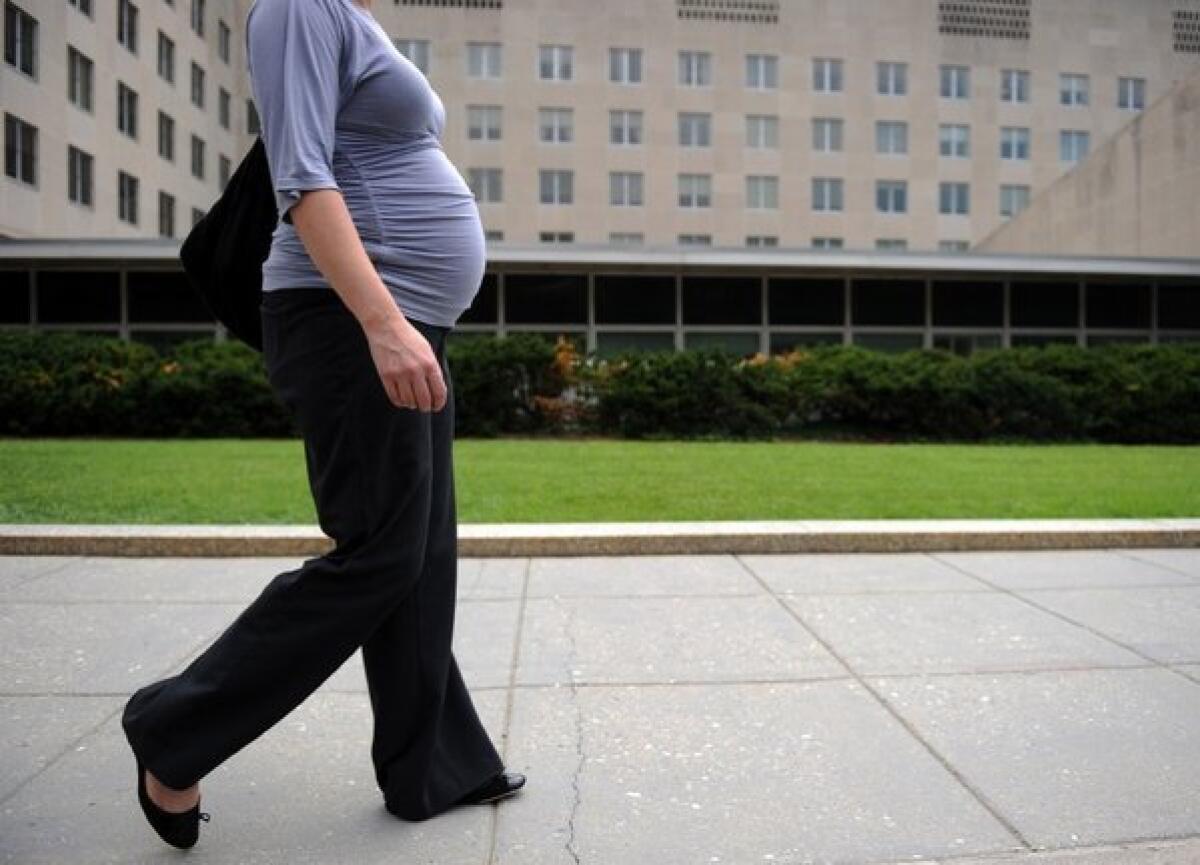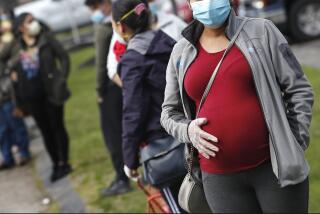Depressed moms, depressed offspring: An unbroken chain?

- Share via
A baby born to a woman who suffers depression during pregnancy stands a higher likelihood of becoming a depressed adolescent than does his or her nursery-mate born to a nondepressed mother, a new study finds.
A large British study also found that among those with less education, a mother’s postpartum depression -- as well as a father’s depression following his baby’s birth -- similarly raised the odds that that offspring would go on the become depressed. Mothers and fathers with more education who became depressed after a baby’s birth appeared less likely to sow the seeds of later depression in the child.
The child’s odds of going on to suffer depression rose steadily as the severity of his mother’s depression during pregnancy increased. And for women with lower education, a case of severe postpartum depression was linked to a higher likelihood that her child would suffer depression by late adolescence than if her postpartum symptoms were milder.
The findings, published Wednesday in the journal JAMA Psychiatry, underscore the importance of treating depression in pregnant women, the authors wrote. And they suggest that a child whose mother was depressed while carrying him would be a good candidate for early intervention aimed at nipping melancholia in the bud.
In the interests of children’s future mental health, public health officials might consider making it a priority to support less-educated mothers who have postpartum depression, the authors wrote.
To explore the intergenerational transmission of depression, the authors tracked 8,937 pregnant women and the children to whom they gave birth in a corner of southwest England between April 1991 and December 1992. After gauging the mental health of the women and their partners throughout and after pregnancy, the researchers collected parental reports on the children and made their own assessments based on regular clinic visits. They tracked the kids until they reached 18.
The study does little to tease apart the many factors known to influence a child’s propensity to develop depression. Genes, early bonding experience with caregivers and even intrauterine environment all are thought to raise or lower the risk. The power of education to blunt the impact of a parent’s postpartum depression is strong testament to the early environmental factors that influence the development of the disorder.
On the other hand, when a mother was depressed during her pregnancy, the likelihood that she would transmit that vulnerability to her unborn child was not mitigated by such social factors as better education. That underscores the contributions of genetics and “fetal programming” -- the stew of hormones and other chemicals in which a baby is incubated, and which powerfully influence brain development -- in the intergenerational pattern of depression.
See also:
Pediatricians issue call to aid children facing ‘toxic stress’
Psychiatrists change recommendations for treating depression
Study: Depressed moms more likely to have overweight 5-year-olds







